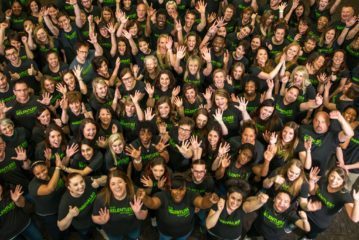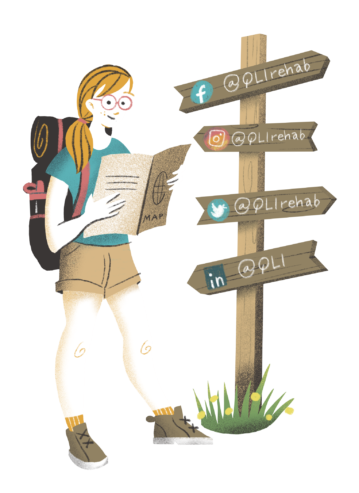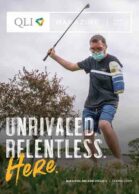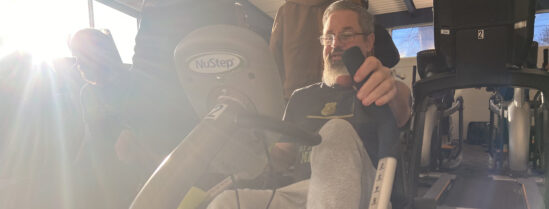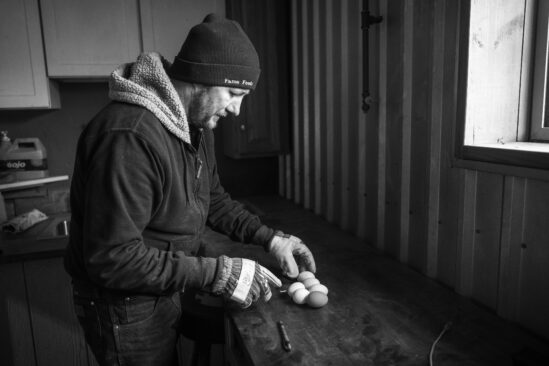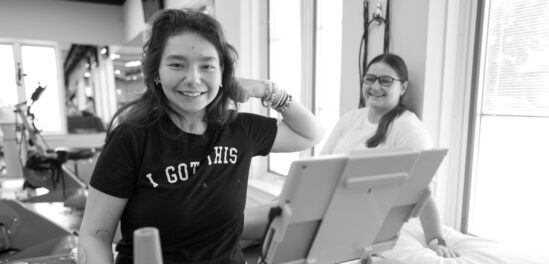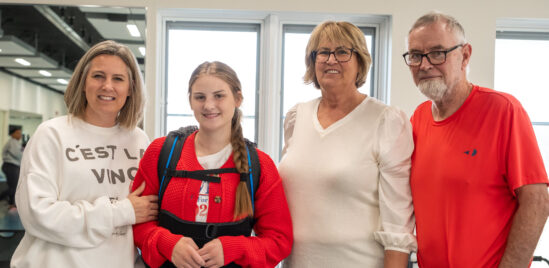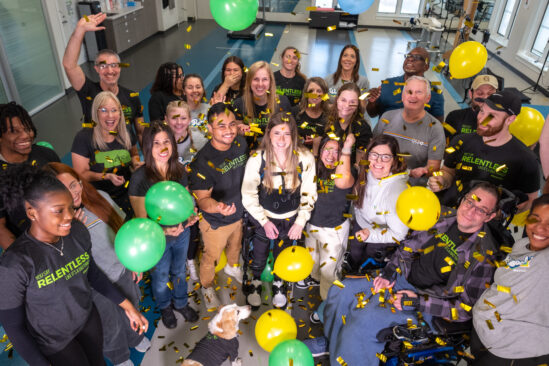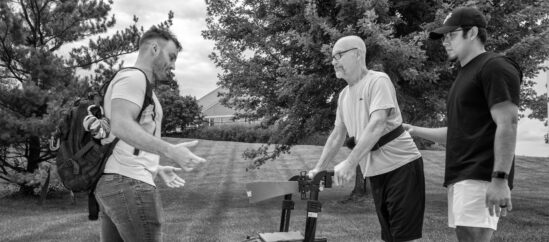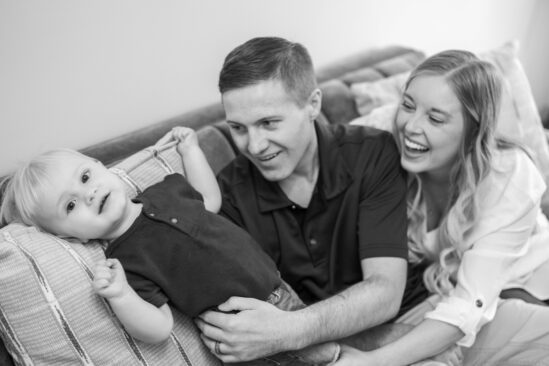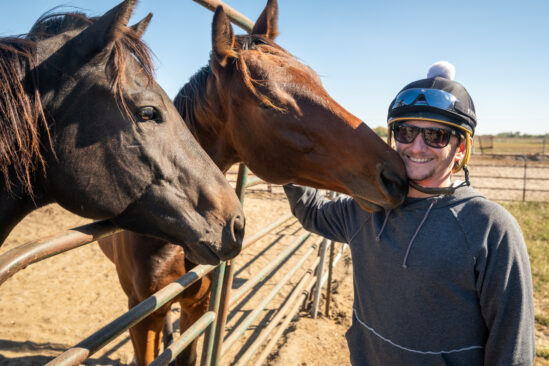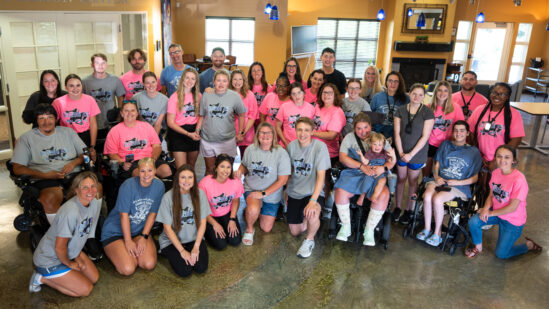With just days until the start of both a new year and a new decade, we figured there was no better time to look back on QLI through the 2010s.
It was a decade of change for QLI. But it was also a decade of excellence, a decade of redefinition, a decade of tenacity and impact and pride. In the 2010s, QLI’s values deepened, and so did our commitment to those we serve. These ten years have seen families from nearly every state in the country served by QLI. What started nearly thirty years ago as an Omaha-area resource turned this decade into a nationally recognized rehabilitation and care powerhouse.
It’s a journey that has only just begun.
Join us as we reflect on the touchstones that defined this decade for QLI.
A NEW CHAPTER
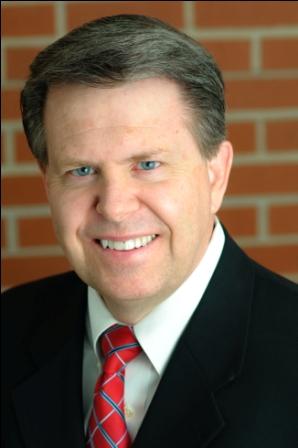
The 2010s began with change of the highest order: a changing of the guard.
When QLI’s founding CEO, Dr. Kim Hoogeveen, elected to eliminate his own position in late 2010, then-vice president of clinical services, Patricia Kearns, and a new leadership team prepared to usher in a new era for QLI. Their mission was multi-faceted: protect the legacy of a “quintessential Omaha” company and forge a vision for a dynamic future.
“I’m thrilled about it,” Dr. Hoogeveen said in a 2010 interview. “I think most CEOs stay three years too long. I think it’s much better to leave three years too soon than three months too late.”
CAMPUS EXPANSION
By 2010, QLI’s rehabilitation and care facilities spanned a 40-acre campus in northwest Omaha. But the company was not finished growing. Not by a long shot.
As QLI’s services evolved over the course of the decade, its amenities grew more robust in parallel. This included additions to our residential units—extra rooms for our inpatient rehabilitation houses and a new wing attached to our skilled nursing facility, giving QLI the flexibility to meet growing, nationwide demands for specialized brain and spinal cord injury rehabilitation services.
But similar growth had major implications for QLI’s clinical offerings as well.
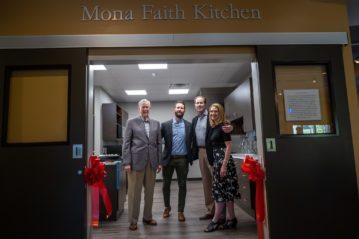
A 2015 expansion to the Lied Life Center reimagined the kinds of therapy possible at QLI. Adding a specialized adaptive sports workshop and a cutting-edge gait and robotics laboratory—the Daniel and Lynda Dietrich Center for Physical Rehabilitation—QLI turned one of its most important therapy centers into an unprecedented confluence of technology, creativity, and clinical expertise.
Newer renovations to QLI’s campus, including our scenic on-campus lake and this year’s Mona Faith Kitchen, continue to reinforce our ability to unite and empower families in their time of need.
A HOME AWAY FROM HOME
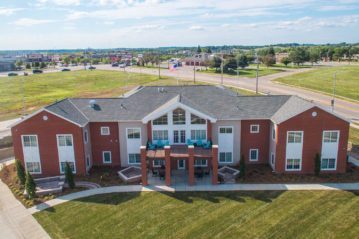
This decade, families traveled to Omaha, Nebraska, from nearly every state of the country, bypassing healthcare providers in their homestates for the chance to participate in QLI’s unique rehabilitation and care services.
It was clear a housing solution was necessary for families traversing the hardship of catastrophic injury. To meet that need, QLI introduced a two-level, 13,000-square-foot home away from home onto its campus. That building, Suzanne Scott Family Housing at QLI, provided richly furnished lodging right on the doorstep of QLI’s own rehabilitation campus.
More than a quiet haven, the space connects occupants directly to their loved ones’ clinical programming, incorporating families into therapy with unprecedented flexibility.
“Our goal with family housing is the same as our goal with anything at QLI,” said Josie Godek, QLI’s Family Housing Coordinator earlier this year. “It’s about being a part of something bigger than yourself. How do we, as a team, do what’s best for the families we serve in every situation?”
PROGRAM EXPANSION
Through the 2010s, change at QLI wasn’t defined simply by the running tally of buildings on campus. Change meant sparking an evolution in therapy services—the development of more effective, more diverse ways to treat catastrophic injuries. Moreover, change meant seeking—or, in some cases, creating—new opportunities to address diagnoses not being comprehensively served by other providers in the industry.
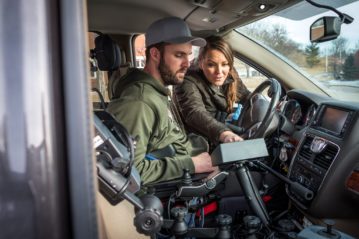 QLI’s Adaptive Driving program gave rehabilitation participants near-unlimited training behind the wheel. To this day, the program employs advanced vehicular modifications to make driving widely accessible, even to individuals recovering from the most severe injuries.
QLI’s Adaptive Driving program gave rehabilitation participants near-unlimited training behind the wheel. To this day, the program employs advanced vehicular modifications to make driving widely accessible, even to individuals recovering from the most severe injuries.- In 2017, shortly after the public release of the Oculus Rift virtual reality (VR) headset, QLI began utilizing VR as a means to break barriers. Not only in and of itself a powerful rehabilitation tool, VR has allowed QLI’s clinicians to transcend the boundaries of traditional therapy. In combining the Oculus Rift with other therapy tools—functional electrical stimulation cycles, for instance—users are immersed in real-world environments that maximize physical output and harden crucial skills into muscle memory. “Therapy on its own can get monotonous,” said spinal cord injury rehabilitation participant Joe Morgan. “The feeling that I’m actually riding [on a trail] helped me ride twice as fast for twice as long.”
- As opioid-based treatment increasingly typified the way the healthcare industry managed cases of chronic pain, QLI introduced a radical new strategy: Pain Rehabilitation. A synthesis of QLI’s industry-leading rehabilitation approach and its research-driven positive psychology model, QLI’s Pain Rehabilitation program doesn’t stop at managing chronic pain—instead, it opens new doors through functional restoration.
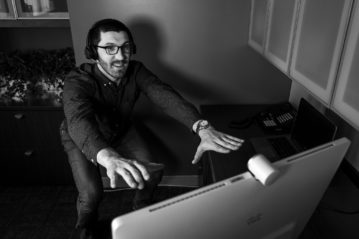 In early 2019, QLI TeleRehabilitation put forward a progressive new vision for outpatient brain and spinal cord injury treatment. A powerful means by which to connect therapy to real-world progress, QLI TeleRehabilitation uses cutting-edge video communication technology to put the clinical expertise in the hands, homes, and situations where recovery matters most. “Each person has such unique and unpredictable life situations,” said QLI TeleRehabilitation occupational therapist Melissa Anderson earlier this year. “Those are truly the richest moments. As therapists, we’re able to truly capture those as opportunities. We don’t have to simulate anything. To learn a skill at the absolute highest level, a person needs to learn it in the most true-to-life situation in which that skill is applicable.”
In early 2019, QLI TeleRehabilitation put forward a progressive new vision for outpatient brain and spinal cord injury treatment. A powerful means by which to connect therapy to real-world progress, QLI TeleRehabilitation uses cutting-edge video communication technology to put the clinical expertise in the hands, homes, and situations where recovery matters most. “Each person has such unique and unpredictable life situations,” said QLI TeleRehabilitation occupational therapist Melissa Anderson earlier this year. “Those are truly the richest moments. As therapists, we’re able to truly capture those as opportunities. We don’t have to simulate anything. To learn a skill at the absolute highest level, a person needs to learn it in the most true-to-life situation in which that skill is applicable.”
COMMUNITY BOOM
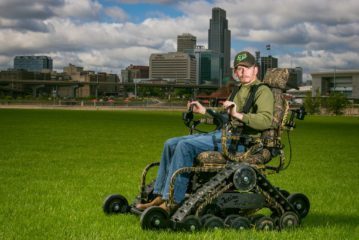
This wasn’t just a ten-year span of clinical focus. Through the 2010s, “community” became a word of extraordinary importance. QLI asked: How can we help shepherd the Omaha community into a bold mindset of universal accessibility? How can we best serve our community beyond the influence of our rehabilitation and care programs?
Partnerships have always shaped QLI. But in the 2010s, partnerships became crucial to the way we helped shape the community.
- The 2014 launch of a universally accessible kayak dock at Omaha’s Glenn Cunningham Lake showcased the ways in which adaptive sports could open the outdoors for individuals living with disability.
- Sports and recreation remained a focus of our partnerships with local businesses as well. Alongside several of our closest collaborators, QLI proudly introduced several adaptive sports initiatives throughout the community to welcome participants of all abilities.
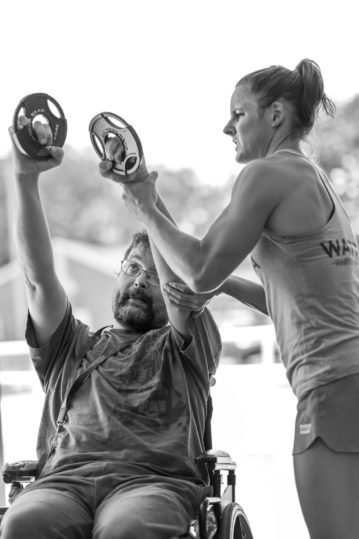 By 2018, promoting lifelong wellness for those with adaptive needs had become one of QLI’s top priorities. It culminated in the creation of GRIT, a one-of-a-kind, community-based adaptive functional fitness program. Partnering with CrossFit Omaha owners Stacie and Dustin Tovar, QLI not only reimagined accessible fitness, but helped adaptive athletes within the community break exciting new ground.
By 2018, promoting lifelong wellness for those with adaptive needs had become one of QLI’s top priorities. It culminated in the creation of GRIT, a one-of-a-kind, community-based adaptive functional fitness program. Partnering with CrossFit Omaha owners Stacie and Dustin Tovar, QLI not only reimagined accessible fitness, but helped adaptive athletes within the community break exciting new ground.- QLI’s evolving mission spurred a similar evolution in our commitment to excellence within Omaha. That commitment first developed through a partnership with the TeamMates Mentoring Program, a partnership that gave QLI leaders the chance to be an active, transformative presence in the lives of middle school and high school students across Northwest Omaha.
- The effort to turn QLI’s internal culture into community gain didn’t stop with mentoring, however. By the end of the decade, as Omaha faced an increasing workforce shortage, QLI launched a specialized Workforce Development program. Blossoming out of continued collaboration with the Avenue Scholars Foundation, the Workforce Development program seeks out high school students from low-income backgrounds and immerses them in QLI’s supportive, enriching, educational healthcare environment. Participants tackle a full curriculum of hands-on learning, become Certified Nursing Assistants, and springboard into sustainable careers within the Omaha healthcare industry. Many program graduates have even accepted roles at QLI.
THROUGH CHANGE, CONSISTENCY. THROUGH CONSISTENCY, EXCELLENCE.
For QLI, the 2010s represented an era of change.
But it was also a decade of tremendous continuity. Over a third of the organization’s 350-plus team members has been with the company for more than ten years. The metric serves as testament to the relentless passion and continued expertise of those who make QLI both a national leader and a community role model.
That outstanding employee retention also reflects QLI’s outstanding workplace culture, which, this decade alone, garnered four “Best Place to Work in Omaha” awards and two distinctions as an employer of “Sustained Excellence” from Baird Holm LLC and the Greater Omaha Chamber of Commerce.
It’s no secret that our team loves being a part of QLI. In fact, that passion is the key to delivering on QLI’s mission both through our clinical services and within our community.
When we talk about what this decade means, change and growth are only parts of the puzzle. In truth, this was a decade of pride, diversity, and creativity.
In truth, this was a decade of excellence.
